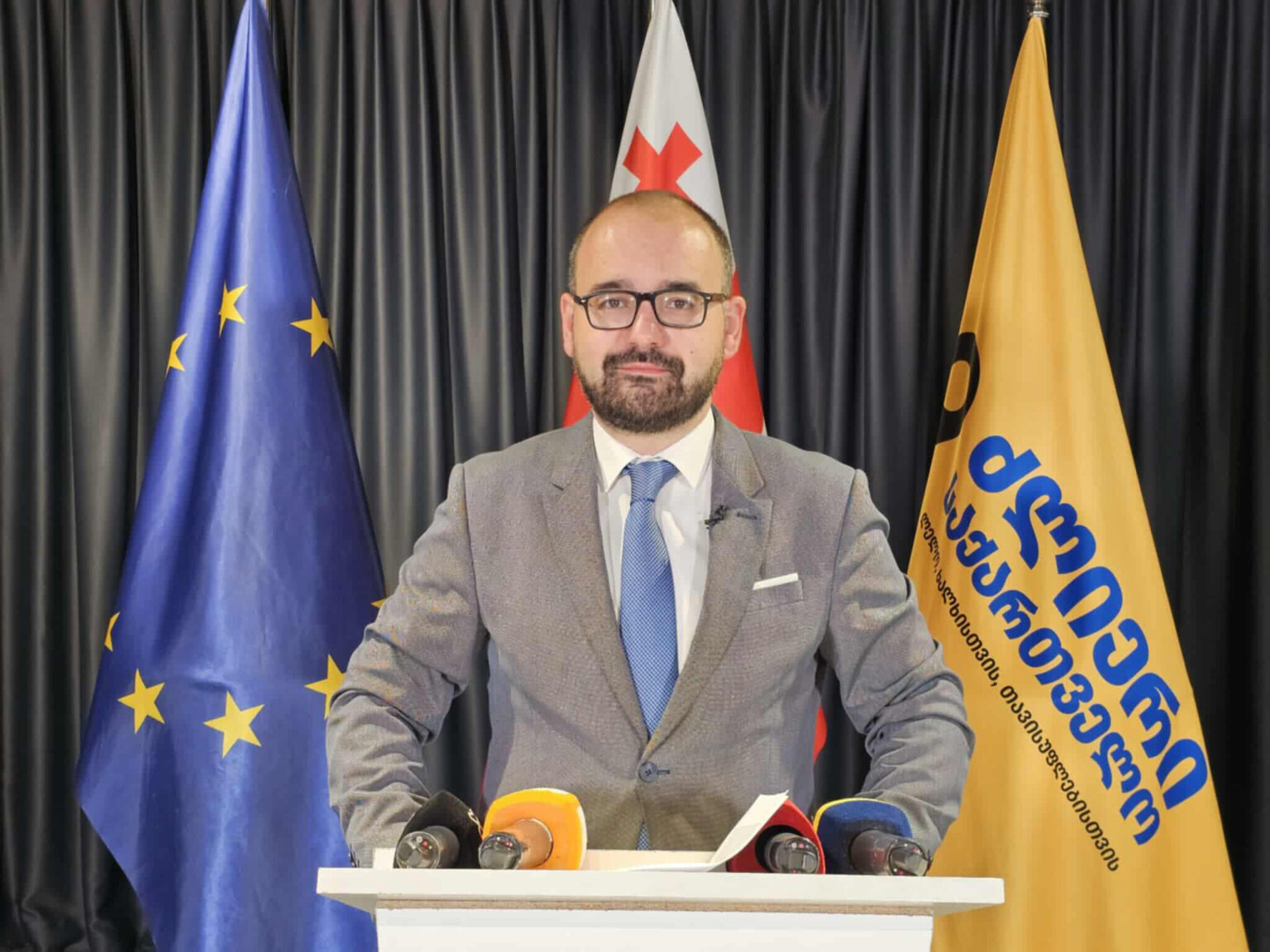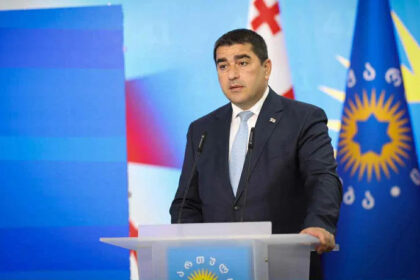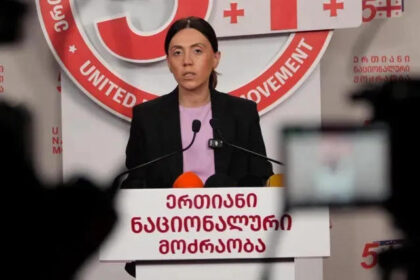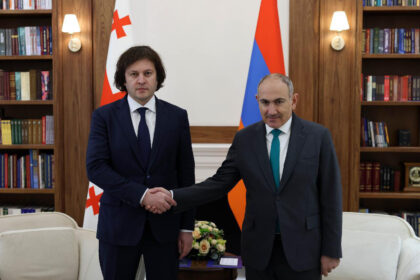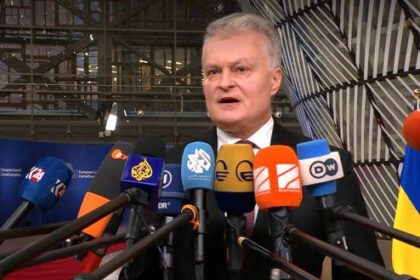**Azerbaijan and Armenia Sign Historic Peace Treaty in Washington, Leaving Georgia Out**
In a significant development for the entire region, Azerbaijan and Armenia have signed a historic peace treaty in Washington. The agreement brings an end to decades-long conflict between the two nations and marks a new era of economic and security cooperation. However, as Georgian Foreign Secretary Grigol Gegelia pointed out at a briefing, Georgia’s de facto government was noticeably absent from this momentous occasion.
Gegelia remarked that it is “comical” for Georgia’s current government to try to make the most of its so-called multi-vector policy when they are not even involved in such important regional events. The Georgian Dream government has been trying to balance relationships with various countries and international organizations, but their efforts have been met with little success.
**Georgia’s Missing Piece**
The fact that Georgia’s de facto prime minister was attending a conference of landlocked countries in Turkmenistan while Azerbaijan and Armenia were signing the peace treaty in Washington is quite telling. Gegelia noted that this meeting of landlocked states did not even feature the leaders of Azerbaijan or Armenia, who were instead busy shaping the new security architecture of the region.
This raises questions about Georgia’s relevance on the global stage and its position within regional politics. As Gegelia pointed out, Georgia should be sitting at the tables where the fate of the new world is being decided, but unfortunately, the current government is not engaged in any meaningful negotiations or diplomatic efforts.
**Consequences for Georgia**
Gegelia emphasized that the Georgian national government’s isolationist approach has led to a situation where they are no longer a part of major regional events. The country’s strategic relations with Washington have been damaged, and its relationships with European Union states have also suffered.
The lack of participation in shaping new security architectures and economic cooperation initiatives will likely have far-reaching consequences for Georgia. As Gegelia stressed, the country needs to be represented at all levels where decisions are being made about its future.
Read More @ www.interpressnews.ge




